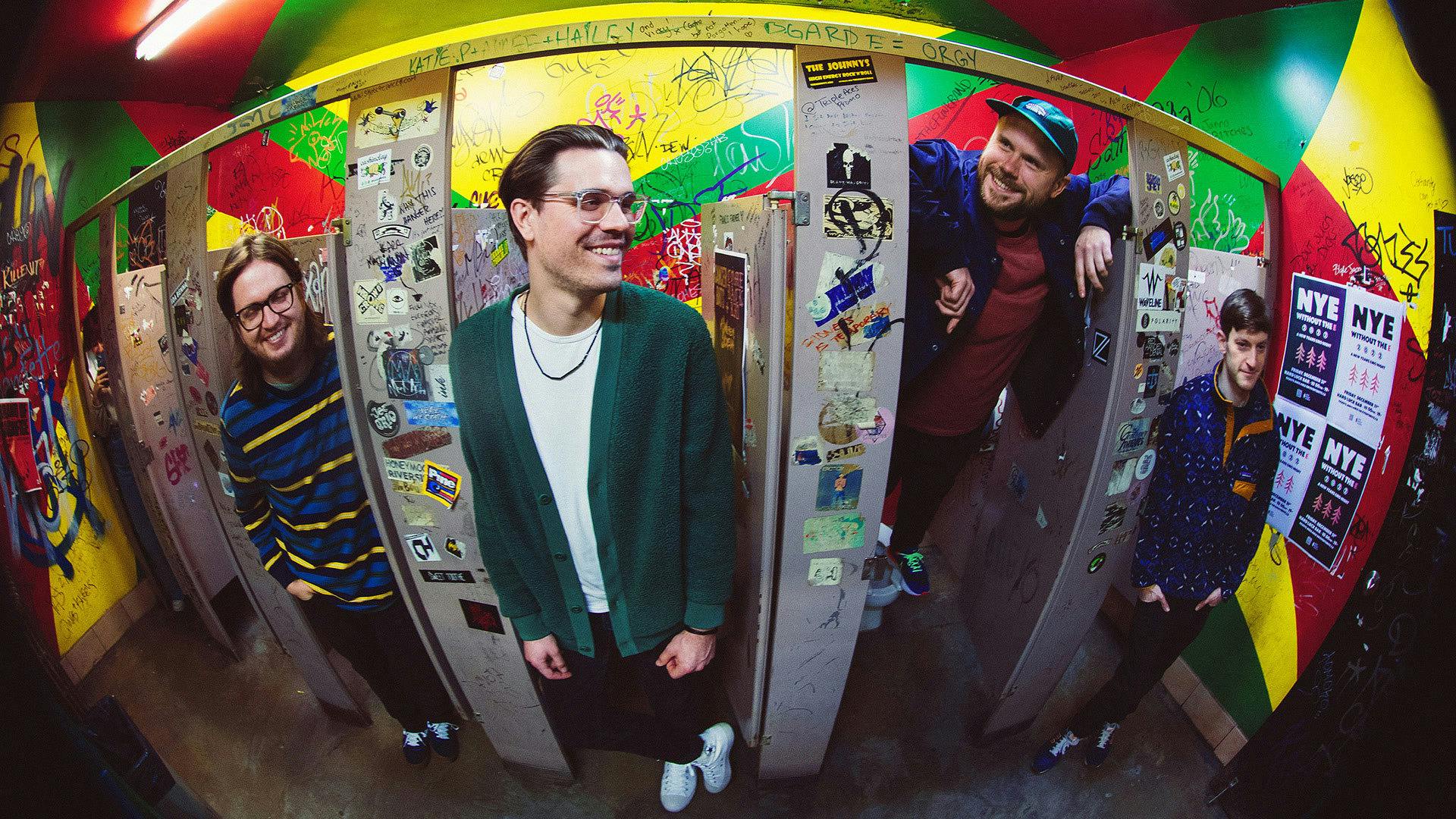For the occasion of PUP’s first-ever Kerrang! cover story, the band’s singer is interviewed a second time, this time alone. With fewer ears trained upon him, his words are delivered with a greater sense of freedom. By now he’s back in snowbound Toronto, in a room from which he seems content to reveal that he’s been “diagnosed with depression”. In earlier stages of his band’s career, Stefan says that he used “drugs and alcohol” as a means of coping with his condition. Not that he “was an addict or anything”, you understand, “but certainly [he] went through stages of doing too much of that”. It’s easily done, too, and not just by people with mental health diagnoses. Out on the road music-makers sit around “all day waiting for that hour-and-a-half [onstage] that’s going to be incredible”. Until it arrives, they’re “bored inside a [dressing] room that’s filled with booze”.
Stefan Babcock pauses, and asks, “You know?”
He says that “most of the time, with the depression I face, it’s hard to convince myself that I want to go onstage. But I know that I have to. [Then] as soon as I step out there the adrenaline kicks in and it becomes an escape. And it’s almost always – almost always – a really wonderful experience that helps to level me out when I get offstage. I feel different. It’s the same endorphin rush as exercising. If you’re feeling bummed out, the last thing you want to do is go out and go running, or whatever. But if you can force yourself to do that, chances are, when you’re done doing that, you’re going to be in a different mental space, and probably a better one. It’s the same idea [playing live] except there’s a lot more emotional release tied up in it.”
Well, yes, when you put it like that. Certainly, Stefan’s words pile flesh on the bones of his statement about the pandemic being “a little bit of a blessing”. In understanding this, it’s helpful, perhaps, to think of bands as machines of perpetual motion. Either they’re writing or recording songs, or else they’re preparing to do so; if they’re not on the road, they’re planning the next tour. Rarely does it stop completely. As well as much else, the constrictions of Canada’s severe COVID protocols meant that “going into the [new album]” the singer was “mentally” – cue a three-second pause – “in a better place” than he had been before. “I wouldn’t say I was in a good place, but I was in a better place.”
And now that it’s finished? Now that The Unraveling Of PUPTHEBAND actually exists?
“I do feel right now I’m in a better place than I’ve been since I was 12,” is the answer. “I think it just came with age and experimenting and finding the things that work for me, and the things that are good for me… [Because] now, although the demon is always over [my] shoulder, it’s much easier now for me to keep him there.”
